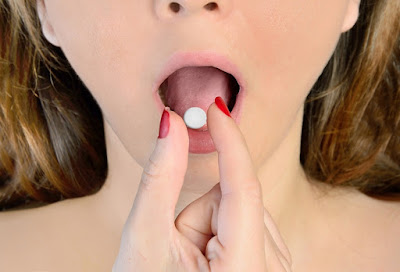Thrush is a name
given to vaginal
yeast infection which is caused by the Candida fungus. Candida survives harmlessly in
the belly, skin, mouth and vagina and is usually kept under control. But at
times, certain diet and few other factors lead to rapid growth of candida. This
condition causes inflammation and then formation of the yeast infection. Thrush
can also cause urinary
tract infections (UTI’s).
Thrush infection can be an unpleasant and a
very uncomfortable experience but it can be treated with medications prescribed
by the doctor or some which are easily available in the pharmacy. But for some
vaginal thrush keeps coming back again and again and such infections become
difficult to treat.
What are the symptoms of thrush?
Some of the symptoms of vaginal thrush are as follows
• Severe itching
• Soreness around the entrance of the vagina
• White discharge (normally looking like cottage cheese) and is usually odourless
• Pain and burning sensation while passing urine
• Pain during intercourse
• Skin around the vagina may get red, swollen or cracked
• And at times sores on the skin
What are the causes of thrush?
If the genital
and anal area is not properly cleaned it can lead to thrush, only washing this
area with water is not sufficient. The other important factor is poor diet
which consists of foods that are high on GI carbohydrate and refined sugar, these
causes the bacteria to grow rapidly. The other causes can be some illness and
use of certain medications and antibiotics.
Individuals in
whom thrush keeps coming back could be due to diabetes or insulin resistance.
Thus it is important to have a low
glycemic index (GI) diet to control the blood-sugar levels.
Candida always starts to grow in the gut which is due to poor diet which
consists of food with high sugar and yeast content which disrupts the gutflora. Therefore
it is essential to replenish the gut flora with good prebiotic and probiotic
foods.
Is thrush contagious?
If a person
keeps getting thrush again after medication and treatment, it is better to
check the sexual partner and provide the necessary treatment to the partner as
well.
In men, thrush
is more common among uncircumcised men compared to circumcised men. It is
essential to keep the penis area clean and dry by washing under the foreskin area.
How can thrush be
treated?
Thrush in a mild form can be treated with anti-fungal
medications which are prescribed by the doctor or over-the-counter medicines
available easily in the pharmacy. The symptoms will start to clear up within a
week or two once the person begins with the medications.
At times, few
people keep getting thrush again and again, in such cases the treatment will be
prolonged for a longer period.
Some of the
medications available for treating thrush are as follows;
- Pessaries: This is a special pill that has to be inserted into the vagina with the help of a special applicator.
- Intravaginal creams: These
are creams which are applied into the vagina with the use of an applicator
- Capsules: These are oral
medications which are more convenient compared to pessaries and
intravaginal creams. But there are some side effects associated with these
capsules like vomiting, nausea, stomach upset.
All the above treatment options are equally
effective and mostly the doctor discusses these options with the patient and
they can choose which treatment they prefer. But pregnant women and those who
are breastfeeding are normally not prescribed capsules due to the side effects.
There are also creams which
are available, that can be applied around the entrance of the vagina. This is
beneficial since it gives some relief from the itchiness and soreness.
One can also make use of some moisturizer which also can be effective.
How can thrush be prevented?
Some of the preventive measures are as follows;
• Make use of water and moisturising soap substitute to clean thoroughly the skin around the vagina and do not clean it more than once a day
• Apply greasier moisturiser around the skin at the entrance of the vagina a couple of times in a day
• Completely avoid potential irritants that are present in perfumed soaps, shower gels, wipes, vaginal deodorants etc.
• Do not wear very tight fitting underwear or tights
• Control the blood sugar levels if diabetic
Some of the simple home remedies to prevent thrush are;
• Yoghurt
• Boric acid
• Aloe vera
• Oil of oregano
• Garlic
• Olive leaf extract
• Baking soda
